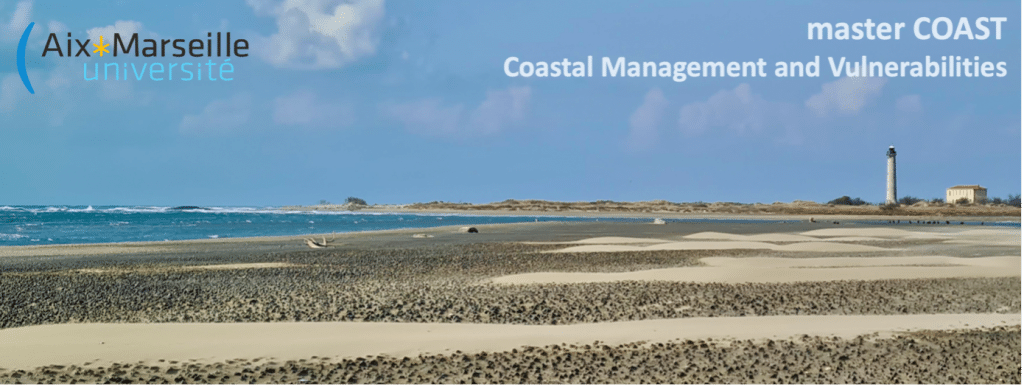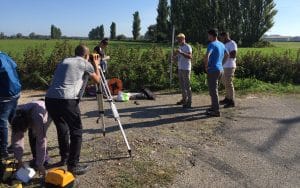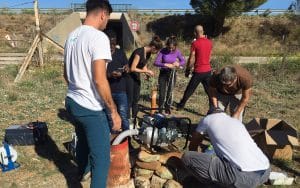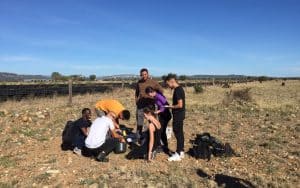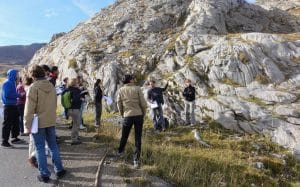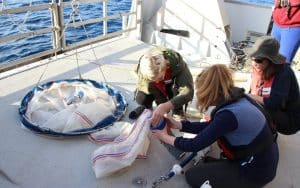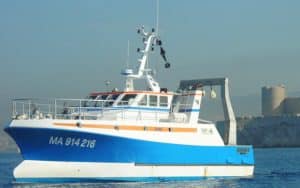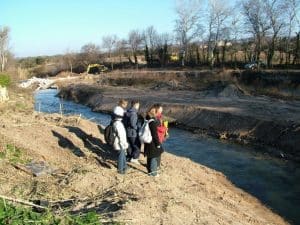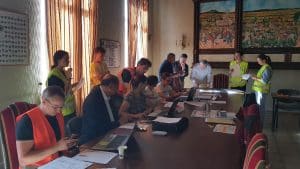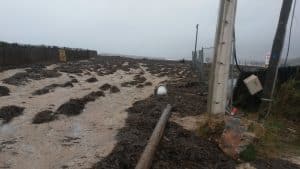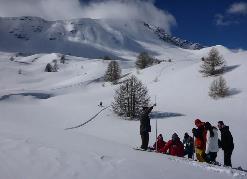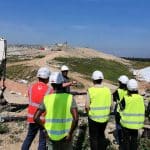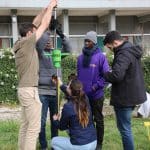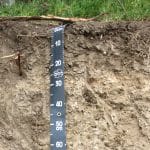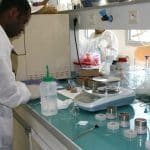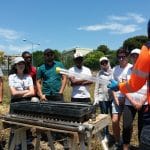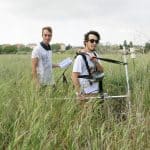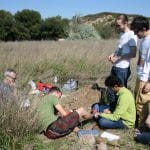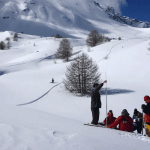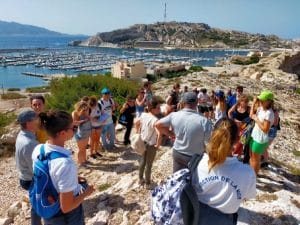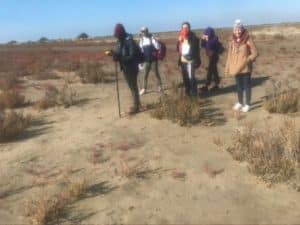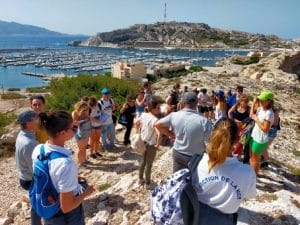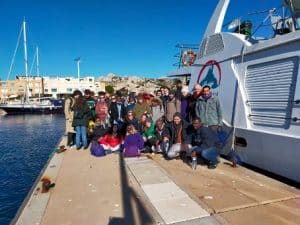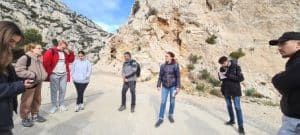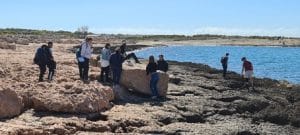Master STPE
The master Earth and Planetary Sciences, Environment (STPE) aims to provide students with cross-disciplinary knowledge and a cutting-edge scientific approach in the geosciences, focusing on major issues such as Global Changes, the resources and natural hazards.
Skills development
- solid training in Geosciences in line with the latest methodological advances in research.
- the ability to reinvest all the disciplinary and thematic knowledge they have acquired to provide a scientific context for their work. environmental problemsIt is relevant and objective in professional situations.
- rigorous dissemination of the knowledge acquired, for both experts and non-specialists.
Areas of application
The course is organised into two tracks:
- International Master in Geosciences (IMG), aims to provide students with cross-disciplinary knowledge and a cutting-edge scientific approach in the geosciences, focusing on major issues such as Global Change and natural hazards. The aim is to train specialists in the processes affecting terrestrial or planetary surfaces and climate changeable to use innovative methods and technologies, in particular by geomatics and geochemistryresponding to environmental issues current and future.
- Geology of Resources and Territories (GRT), aims to train naturalist geologists using observation, measurement and numerical modelling to predict the functioning and properties of geological objects as part of the natural resources management (Water, Geotechnics, Materials, Risks, Energy, Hydrocarbons, Geothermal, CO2-Waste-Energy Storage) and the sustainable developmentfrom the regional to the global scale.
Pedagogy
The work of land is fundamental to the teaching of the Master's degree in STPE, with different courses offered to students during their studies. Particular emphasis is also placed on digital techniques for data analysis in the geosciences: Geographic Information Systems, modelling, geostatistics.
The IMG course is taught in English from the second semester of M1.
The active pedagogies are at the heart of the programme, with a Project-Based Learning (PBL) module every semester. Finally, each year includes a work placement (in a company or academic laboratory), including a full semester in M2.
The Master STPE is largely based on the research potential of the CEREGE and in particular its analytical platforms, unique in France, to train students in the use of cutting-edge geoscience techniques.
Target audience
Students from the Earth Sciences, Life and Earth Sciences, Geography, Chemistry or Physics degree courses
Purpose and opportunities
Our aim is to train specialists in resources, processes affecting terrestrial or planetary surfaces and climate change, capable of using innovative methods and technologies to meet current and future environmental challenges.
Graduates can go on to work as engineers in the academic world, in companies involved in environmental issues, local authorities and other organisations involved in environmental policies. Further study as part of a PhD is also an important outlet for STPE Masters students.
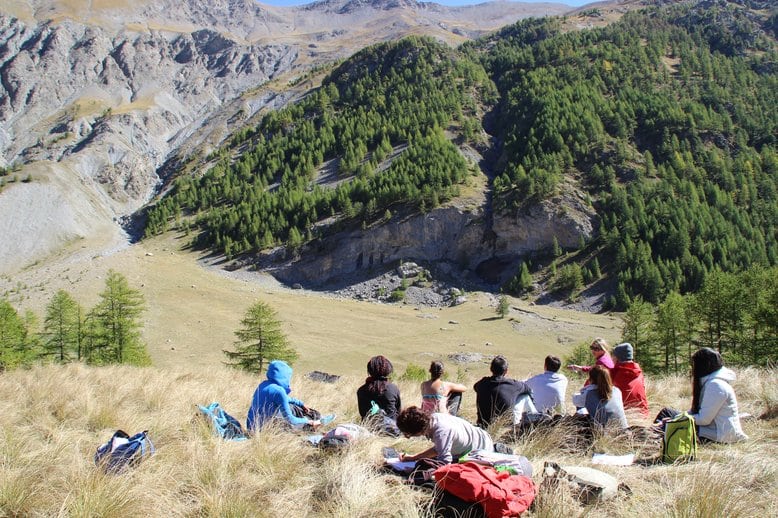
Master RIE
The master Risks and the environment The Territorial Management of Natural and Technological Risk - Risk Science & Work-Study programme is designed to train risk management professionals for local authorities, government bodies and consultancies.
The Master's programme is organised as a single course, but from M2 onwards can be divided into 2 streams, one of which is a traditional initial training course, and the other a sandwich course.
The GERINAT route This course is aimed at study managers, risk and environment project managers, equivalent engineers in design offices, engineers and technical managers in the local civil service, fire and rescue services, government services (DDT, prefecture), environmental associations, environmental engineers, earth science researchers, HSE managers, fire brigade officers: lieutenants and captains.
The teaching in M1 enables students to develop concepts and master phenomena at the level of natural hazards - flooding, gravitational movements, forest fires, seismic risks, coastal erosion and submersion, torrential phenomena. Understand the players involved in risk and environmental management.
M2 focuses on the operational tools of risk management, the role of local authorities, the mitigation of phenomena and their impact through structures, risk management plans (PPR, PPRT, PIDAF), regulatory aspects and crisis management.
Skills development
The knowledge acquired is both technical and managerial at engineering level, focusing on knowledge of natural risks (hazards, issues) and their prevention/management: prevention and crisis management tools (we participate in and even organise communal or prefectoral exercises), environmental and risk regulations, engineering (protection sizing, river development techniques, avalanches, forest fires and forest management, etc.), integration of the environment and risks into regional policies and management, and to a lesser extent technological risks (identification of industrial risks, industrial prevention tools and environmental impacts).and to a lesser extent on technological risks (identification of industrial risks, industrial prevention tools and environmental impacts).
Cross-disciplinary knowledge: learning and perfecting QGIS, various courses on professional tools (public procurement and project economics, financing and setting up public projects).
Define and diagnose hazards and risks, mobilise and integrate prevention tools, develop skills and know-how specific to risks and the environment, specialise in knowledge specific to and applied to risks, mobilise this knowledge in a professional context at an engineering equivalent level.
Pedagogy
Professionals teaching and working in the field of risk management Gerinat is a professional master's programme with almost 75 % of lecturers are professionals from CEREMA, SDIS, CEREN, INRAE, local authorities, Cyprès, DDT, Météo France, water, environment, risk and industrial management engineers. The co-director of the master's programme is an Associate Professor (PAST) from the engineering consultancy sector.
Active teaching Project-based teaching: a large part of the teaching is based on active and project-based teaching: tutored projects commissioned by local authorities and consultancies, meetings with risk and environment professionals (elected representatives, engineers and local authority project managers), 3 field schools. Organisation of and participation in municipal and prefectural crisis exercises, 5 specialisation modules in active teaching in semester 4 of GERINAT ALTER. Case studies and active teaching through environmental projects in semester 2. Students are put into professional situations, such as organising crisis drills and implementing emergency preparedness plans. To date, GERINAT students have organised crisis management exercises for the towns of Rognes, Port de Bouc, Brignoles, Le Val, Salerne, Trans-en-Provence, etc. and have updated the emergency response plans for Rognes, Carry le Rouet, Port de Bouc, etc.
Target audience
Students with a bachelor's degree in Earth Sciences, Geography, Life and Earth Sciences, Environmental Studies or HSE, in initial or continuing education, who can show proof of a 3-year higher education qualification (possibly by VAP) and who wish to prepare for the master's in class or by VAE.
Purpose and opportunities
Our aim is to train multi-skilled professionals in natural risks and, to a lesser extent, technological risks, who can work in private and public organisations - consultancies, river syndicates, environmental and risk departments of local authorities, associations, industries, departmental fire and rescue services (SDIS) - as project managers, study managers, environmental and risk technicians or engineers.
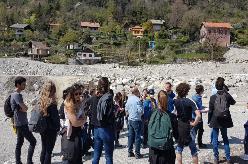
Master in Environmental Management
Course: Environmental Management, Valuation and Analysis - Environmental Sciences and Technologies (MAEVA-STE)
Purpose Soil, Waste and Polluted Sites Management (SWSM)
The aim of this two-year degree is to train professionals capable of implementing sustainable management of our environment. It provides students with the knowledge and tools necessary to understand the natural and anthropised functioning of terrestrial ecosystems - natural, agricultural, urban and industrial environments -, to model the dissemination of pollution in the environment, to manage and recover waste, to propose corrective measures for the degradation of polluted sites and soils, to evaluate environmental management measures (QHSE) and to set up a nuclear safety approach
The education The courses include a mixture of lectures, practical work and practical work associated with company visits. Half of the courses are taught by teacher-researchers or researchers in physical chemistry, water and soil geochemistry, biogeochemistry, geophysics, pedology, soil microbiology, geomatics, geology, hydrogeology and geomorphology, and professionals from the PHC and waste management sectors (BE, INERIS, VEOLIA, CEREMA ....).
The M1 internship of at least one month, followed by the 5 to 6 month end-of-study internship, enables them to finalise their professional project and can take place either in a research laboratory or in a company.
Climate and Environmental Management (CEM)
This purpose is structured on two pillars:
. environmental management, dedicated to the issue of environmental standards, assessment and management of environmental risks in companies
. knowledge and consideration of climate change in the adaptation and mitigation strategies of companies or territories.
The GEC purpose This brings together the skills of environmental risk diagnosticians for a wide range of professions, from the QHSE approach in companies to climate vulnerability in the territories, via footprint assessments (carbon footprint).
Target audience
Students with a degree in Environment, Environmental Engineering, Earth Sciences, Ecology or Process Engineering.
Purpose and opportunities
- Our objective is to train specialists in the technical and regulatory management of environments and resources (e.g. SSP engineer, HSE engineer, sustainable development officer, etc.) in the private or public sector. Students may be eligible for further research (thesis, study engineer, etc.)
Target audience
Students with a degree in Earth Sciences, Earth Sciences, Geography, or continuing education.
Purpose and opportunities
- Our objective is to train specialists who can manage a Quality Safety Environment Climate approach within a company, a community or on a regional scale.
Master COAST
Course: COAST (Coastal management and vulnerabilities) master's degree
To join the COAST pathway, it is essential to show a marked enthusiasm for acquiring specialist skills in coastal geomorphology, which are particularly relevant today in the context of coastal management. This approach requires an open mind, ready to embrace the multidisciplinary approach that is essential if we are to meet the complex challenges of coastal environments.
In M1, students learn the basics of scientific production and explore the key facets of geomorphology and coastal geography. They deepen their understanding by writing a dissertation on a topic of their choice (shoreline recession, coastal engineering, beach morphodynamics, conservation of marine protected areas, climate change adaptation policies, tourism and landscape pressures, etc.). In M2, lectures focus on advanced topics such as coastal resilience, nature-based solutions and integrated coastal zone management. Students apply this knowledge by working on studies as part of a team in a consultancy context, before putting their skills into practice during an internship in an academic environment, a company, a local authority or an association.
Pedagogy
Lectures provide a structured framework for acquiring fundamental knowledge, while project-based learning engages students in practical applications, reinforcing understanding and technical skills. Active teaching methods encourage student participation, interactive discussions and collaborative problem-solving, creating a dynamic and stimulating learning environment in a class of around 12 students.
Cross-disciplinary skills
COAST stands out for its commitment to developing cross-disciplinary skills that are important for a successful education. With an emphasis on professional networking (trade shows and conferences), students will have the opportunity to make meaningful connections with key players in their field. Teamwork, at the heart of our teaching approach, enables students to acquire essential collaborative skills. The use of English strengthens students' international outlook, and participation in international summer schools is facilitated.
Target audience
- Students from general bachelor's degrees: Geography and Town and Country Planning, Life and Earth Sciences, Law, MIASHS; professional bachelor's degrees and Master's degrees in the environment, cartography and town planning. Some students who already have a Master's degree may enter M2.
Purpose and opportunities
- Our aim is to train specialists in coastal management using a multidisciplinary approach. Students will need to master concepts related to coastal geomorphology and the social sciences in order to meet the challenges of adapting to climate change and anthropogenic activities in the coastal zone.
- Graduates can take up management positions in companies specialising in the coastal environment, local authorities and other organisations involved in environmental policies. A doctorate is also an option for COAST students.
